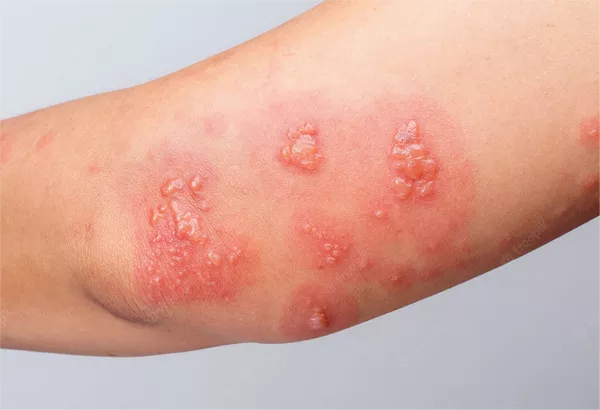GSK plc (LON/NYSE) has disclosed encouraging findings from the ZOSTER-049 phase III trial’s long-term follow-up, which monitored participants for approximately 11 years post-initial vaccination with Shingrix (Recombinant Zoster Vaccine or RZV). The final trial data underscore that RZV sustains its effectiveness against shingles for more than ten years in individuals aged 50 and above. These findings are slated for presentation at ESCMID Global 2024 (European Society of Clinical Microbiology and Infectious Diseases) in Barcelona, Spain, scheduled from April 27 to 30, 2024.
The latest long-term data affirm that Shingrix continues to confer robust protection against shingles among adults aged 50 and older for an extended duration:
- End-of-trial statistics demonstrate a 79.7% efficacy rate in participants aged 50 years and above, spanning six to 11 years post-vaccination.
- Vaccine efficacy remains notably high at 82.0% at the 11-year mark after initial vaccination.
- No new safety concerns surfaced during the follow-up period.
The results from ZOSTER-049, an extension of two phase III clinical trials conducted in adults aged 50 and above (ZOE-50 and ZOE-70), encompass:
- A vaccine efficacy (VE) of 79.7% in adults aged 50 and above cumulatively from year six to year 11 post-vaccination (95% CI 73.7-84.6).
- A VE of 82.0% in adults aged 50 and above at year 11 (95% CI 63.0-92.2), indicating sustained high VE rates annually post-vaccination.
- A VE of 73.1% in adults aged 70 and above cumulatively from six to 11 years post-vaccination (95% CI 62.9-80.9), demonstrating robust VE rates across all age cohorts.
Dr. Javier Díez-Domingo, Principal Investigator at FISABIO (Foundation for the Promotion of Health and Biomedical Research of the Valencian Community, Spain), remarked, “These conclusive data showcase continuous protection over more than a decade with sustained efficacy observed in both the 50+ and 70+ age brackets. Infectious diseases like shingles pose significant risks to adults owing to the natural waning of our immune system, and these findings represent a notable stride in comprehending the long-term efficacy achievable for shingles protection.”
Phil Dormitzer, GSK Senior Vice President and Head of Vaccines R&D, stated, “These findings surpass the conventional long-term follow-up period for a trial, monitoring vaccination efficacy as participants aged into their 70s, 80s, and 90s. With the vaccine now integrated into numerous national immunization programs worldwide, these data enrich the body of evidence concerning extended long-term protection against shingles, instilling further confidence in informing public immunization strategies.”
Globally, shingles affects up to one in three individuals during their lifetimes. Various factors heighten the risk of shingles development, including advancing age, immunodeficiency, or immunosuppression, alongside chronic conditions such as COPD, diabetes mellitus, and asthma. Shingles typically manifests as a rash with painful blisters across the chest, abdomen, or face, with associated sensations described as aching, burning, stabbing, or shock-like. Following the rash, up to 30% of individuals endure post-herpetic neuralgia (PHN), characterized by enduring nerve pain lasting weeks or months, occasionally persisting for years. Shingles also incurs substantial healthcare and societal costs, with 57% of affected individuals reporting work absenteeism averaging 9.1 days.
Continuous evaluation of long-term data and real-world evidence studies pertaining to vaccine efficacy, immunogenicity, and safety across indicated populations, including those at highest shingles risk, will persist to assess potential requirements for revaccination in the future.
About ZOSTER-049
ZOSTER-049 constitutes a phase III open-label, long-term follow-up trial stemming from two pivotal phase III randomized clinical trials (ZOE-50, ZOE-70). The trial examined efficacy, safety, and immunogenicity in adults aged 50 and above at the time of vaccination, extending six additional years beyond the culmination of the ZOE-50 and ZOE-70 trials, totaling approximately 11 years of follow-up.
Encompassing over 7,000 participants from 18 countries across five continents, ZOSTER-049 juxtaposed vaccine recipients against historical controls.
No new safety concerns emerged during the ZOSTER-049 follow-up period. Investigators deemed no serious adverse events causally linked to RZV vaccination in adults aged 50 and above. Among this demographic, commonly reported adverse reactions to RZV encompassed pain at the injection site, myalgia, fatigue, and headache, with most reactions characterized as mild to moderate in intensity and typically subsiding within three days.


























